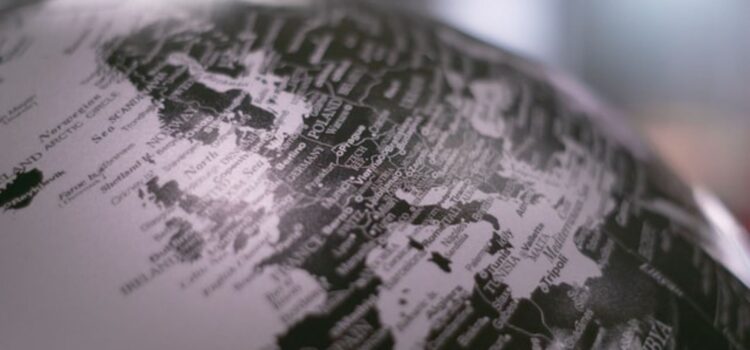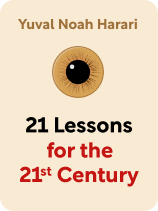

This article is an excerpt from the Shortform book guide to "21 Lessons for the 21st Century" by Yuval Noah Harari. Shortform has the world's best summaries and analyses of books you should be reading.
Like this article? Sign up for a free trial here .
Can it be argued that we are all part of one global civilization? What are the common themes that are shared by all nations of the world?
As globalization has connected the world economically, socially, and technologically, all of humankind has merged into one global civilization. And although nations differ in terms of cultures and religions, they all follow virtually the same economic, medical, and scientific paradigms.
Read about the rise of global civilization.
Global Civilization: Bringing Humanity Together
The goal of bringing humanity together raises the question: What divided humanity in the first place? Throughout history, people have distinguished different cultures and religions as distinct civilizations that clash and compete, as if natural selection were weeding out various sects of humanity. For example, politicians and pundits today talk about the clash between Islamic civilization and Western civilization, claiming that only one or the other can ultimately survive.
In reality, all humans are part of a global civilization, and individual cultural identities and social structures are merely different branches of that civilization. Although a Muslim and a Westerner may behave differently, the differences are cultural, not genetic. People tend to reinforce differences among different cultures by overemphasizing the defining characteristics of each culture, pointing to common themes throughout that culture’s history. However, the most consistent and enduring characteristic of any culture is its ever-changing nature. For example, modern ultra-Orthodox Jews go to great lengths to separate men and women in synagogues in the name of traditions around modesty—and this becomes a point of distinction between them and other cultures—but excavations of ancient synagogues in Israel reveal murals of scantily clad women, suggesting that modesty is not an ancient value in that culture.
Nations Merge Into a Global Civilization
Unlike different species—which can never merge—civilizations can come together as one. Throughout human history, distinct tribes have merged into larger nations and civilizations.
There are two aspects of this process of global merging:
1) Creating connections that link groups. This can happen between groups that appear to have little in common. For example, during the 20th century, wars played a large role in linking countries around the world. Although war limits or halts trade between battling nations, the deployment of troops quickly spreads cultural practices, ideas, and technologies. War also creates connections by raising the public’s curiosity about the enemy—for example, far more American movies have been made about Russia, Vietnam, and the Middle East than Canada.
2) Establishing uniform behaviors among groups. On the surface, it may not seem like there is uniformity in our global civilization. But, at its core, virtually every modern culture follows the same political paradigm, which values human rights, political representation, and international law. On a more visible level, nearly every country has a rectangular flag comprising simple shapes and colors, as well as an anthem that lasts a few minutes and hits on themes of patriotism and independence. These shared values make it possible for people across the globe to find common ground, and that has been critical to the merging of the modern global civilization.
By contrast, a thousand years ago, people in different regions followed different political models—some were loyal to kings, others followed priests, some were tribal, and others believed themselves to be the only legitimate civilization. Additionally, power and political structures changed constantly, as some societies disintegrated and others conquered and absorbed new territories. As a result, it was nearly impossible for different groups to agree on procedures and laws for their interactions amongst each other.
Institutions and Conflicts Define a Civilization
The commonalities we see among nations in the modern world are not limited to political paradigms. They also include:
- Economic systems: A thousand years ago, different groups had distinct economic models governing money, taxes, income, and trade. Today, although countries have different currencies, they generally all follow some version of capitalism. Additionally, in the modern globalized economy, nations around the world are interconnected through the global supply chain.
- Medical practices: A thousand years ago, if you became sick, your treatment would depend largely upon which group you belonged to. In one region, a priest would tell you to pray and donate to the church in order to get well. In another region, doctors would prescribe herbs and tonics. Today, despite some cultural nuances and differences in available resources, you would get the same treatment almost anywhere in the world. Just about all doctors learn the same scientific foundation, follow the same protocols, and prescribe the same drugs.
- Science: A thousand years ago, different groups and cultures had distinct explanations for how and why the world worked the way it did. Today, scientists in all corners of the world agree that the earth is round and that gravity pulls objects down.
Of course, there are differences among groups—from religious beliefs to national identities—but all of the basic and practical matters are largely agreed upon. Furthermore, no civilization is without internal disputes; even within a family or a friend group, disagreements are inevitable. In fact, common conflicts and dilemmas are a defining feature of membership within a group. For example, in 1618, members of the European civilization were in fierce conflict about their vastly different religious views. At the time, that struggle defined European identity, because those outside of that civilization would have little understanding or interest in such a dilemma.
Today, in our global civilization, the biggest challenges of the 21st century will confront people in all corners of the world, including:
- The effects of climate change
- The advancement of technology and automation in the labor market
- Innovations in biotechnology to improve and extend life

———End of Preview———
Like what you just read? Read the rest of the world's best book summary and analysis of Yuval Noah Harari's "21 Lessons for the 21st Century" at Shortform .
Here's what you'll find in our full 21 Lessons for the 21st Century summary :
- What the unique challenges of the 21st century are and will be
- Why religion can't solve these 21st-century challenges
- How algorithms like Netflix recommendations are teaching you not to trust yourself






